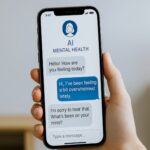Virtual Outpatient Programs: Are They as Effective as In-Person
Over the last few years, virtual care has rapidly become a major part of the mental health and addiction treatment world. Virtual outpatient programs—once a backup option—are now a preferred choice for many people. But with the shift to online formats, one big question keeps coming up: Are virtual outpatient programs just as effective as in-person care?
Let’s break it down in simple terms and explore what the research says, what real people experience, and whether this path might be the right one for you or your loved one.
What Are Addiction Virtual Outpatient Programs
Virtual outpatient programs offer the same support, structure, and therapy you’d receive in a traditional outpatient setting—but entirely online. Sessions are held via secure video platforms and may include:
- Individual therapy
- Group counseling
- Family sessions
- Psychiatric evaluations
- Medication management
- Life skills workshops
Depending on the level of care, you may attend just a couple of sessions per week or several hours a day, multiple days a week. These programs range from standard outpatient (OP) to more intensive models like Intensive Outpatient Programs (IOP) and Partial Hospitalization Programs (PHP).
Why Virtual Outpatient Programs Are So Popular
Virtual care isn’t just a pandemic-era solution. Many people now prefer it because of its flexibility and convenience. Here are some key benefits:
1. Accessibility
You can join from anywhere with a stable internet connection. This is especially helpful for people living in rural areas or without transportation.
2. Comfort and Privacy
Many people feel more relaxed opening up from the comfort of their own home. There’s also less stigma—no need to worry about who might see you walking into a treatment center.
3. Work and Family Balance
Virtual programs allow you to maintain daily responsibilities like work, school, and childcare while still receiving structured support.
Do Virtual Outpatient Programs Really Work
The short answer is yes—for many people. Multiple studies have shown that telehealth services are just as effective as in-person treatment for a wide range of mental health and substance use conditions.
The Research
- A 2022 review published in JMIR Mental Health found that teletherapy and virtual group sessions were equally effective in reducing depression and anxiety symptoms compared to in-person care1.
- According to the Substance Abuse and Mental Health Services Administration (SAMHSA), telehealth-based IOPs have outcomes comparable to in-person programs, especially when clients are actively engaged and supported2.
- A study from The American Journal of Psychiatry reported that patients with opioid use disorder in telehealth MAT programs had similar or better retention rates than those in face-to-face programs3.
When Are Virtual Outpatient Programs Most Effective?
While virtual programs work well for many, they’re not a one-size-fits-all solution. Here’s when they tend to be most effective:
Mild to Moderate Symptoms
People with moderate depression, anxiety, or substance use issues often do well in virtual settings.
Strong Home Support
If you live in a safe and supportive environment, virtual care allows you to heal while staying connected to your daily life.
Comfort with Technology
Being able to navigate online platforms makes it easier to engage consistently in virtual treatment.
When In-Person Care May Be Better
While virtual programs are powerful tools, some situations call for in-person care:
Severe or Complex Conditions
Individuals experiencing suicidal thoughts, psychosis, or complex trauma may need hands-on, face-to-face supervision.
Unstable Living Situations
If someone lives in an unsafe environment or lacks privacy, it may be harder to fully engage in virtual sessions.
Limited Tech Access
Without a reliable device or internet connection, virtual care becomes frustrating and ineffective.
What to Expect in a Virtual Outpatient Program
The best virtual programs mirror in-person ones in structure and quality. Here’s what a typical day might look like in a virtual IOP:
- Morning check-in or mindfulness session
- Group therapy on specific topics like relapse prevention or emotional regulation
- Breaks between sessions
- Individual counseling with a licensed therapist
- Psycho education or life skills workshops
- Family therapy (if applicable)
- Daily homework or journaling promptsMost programs use secure platforms like Zoom for Healthcare, Doxy.me, or proprietary systems with HIPAA compliance to ensure your privacy and confidentiality.
Tips to Get the Most Out of Virtual Care
Whether you’re just starting or switching from in-person, here are a few tips to succeed in a virtual outpatient program:
1. Create a Dedicated Space
Find a quiet, private area where you can attend sessions without distractions.
2. Stick to a Routine
Even if you’re at home, treat the program like a job. Show up on time, dress comfortably, and stay engaged.
3. Use a Strong Internet Connection
Technical issues can interrupt progress. Make sure your device is updated and your internet is stable.
4. Stay Connected
Don’t skip sessions. Keep in touch with your therapist and peers outside scheduled hours if the program allows it.
Do Insurance Plans Cover Virtual Treatment
Yes, more than ever. Since the pandemic, most major insurance providers and Medicaid programs have expanded their telehealth coverage. Many virtual outpatient programs are now fully or partially covered, but always confirm with your provider or treatment center in advance.
Final Thoughts On Virtual Outpatient Programs
Virtual outpatient programs offer a flexible, effective path to recovery for many individuals dealing with mental health or addiction challenges. The key is finding a program that’s high-quality, personalized, and a good fit for your unique needs.
While they may not replace in-person care for everyone, virtual programs have proven to be just as successful for many people—especially those with supportive homes and moderate symptoms. If convenience, privacy, and accessibility matter to you, this option might just be your best step forward.
More Articles To Read
Dealing With Addiction Issues: Why You Should Go To A Rehab
Tips For Dog Owners In Recovery
The Caregiving Daughter: From Duty to Burnout
Symptoms Of Stress: What To Do
Article References
- JMIR Mental Health. (2022). Comparing the Effectiveness of Online vs In-Person Mental Health Treatment. ↩
- Substance Abuse and Mental Health Services Administration (SAMHSA). (2022). Telehealth for Substance Use and Mental Health. ↩
The American Journal of Psychiatry. (2021). Treatment Retention in Telehealth for Opioid Use Disorder. ↩





















